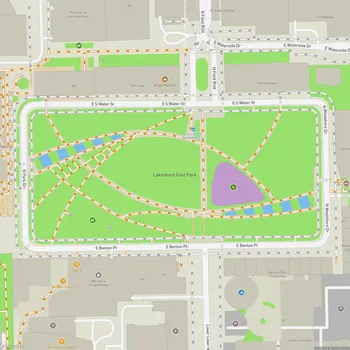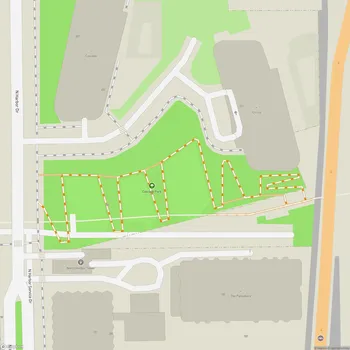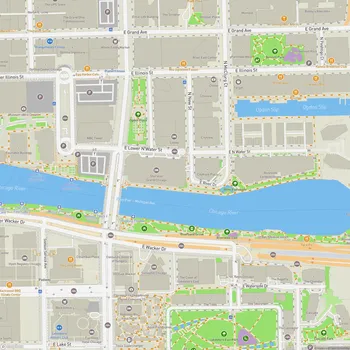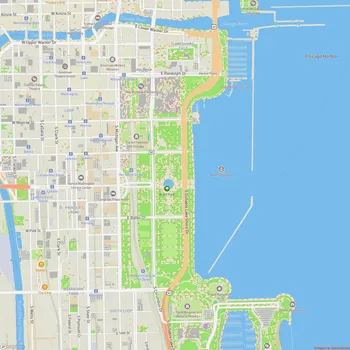Maggie Daley Park
Maggie Daley Park Map
About Maggie Daley Park in Chicago
Maggie Daley Park is a vibrant 20-acre urban park located at 337 E. Randolph Street in the Loop community area of Chicago, Illinois. Opened in December 2014, it replaced the former Daley Bicentennial Plaza and is managed by the Chicago Park District. This dynamic green space is directly connected to Millennium Park via the BP Pedestrian Bridge and offers a balanced blend of active recreational features and tranquil landscapes.
One of the park’s standout attractions is the *Skating Ribbon*, a quarter-mile loop that provides a unique ice skating experience in the winter and transforms into a path for rollerblading and scootering in warmer months. The ribbon encircles *rock-climbing walls*, where climbers of all skill levels can test their abilities on sculptural rocks that reach up to 40 feet in height. Another signature feature, the *Play Garden*, spans three acres and offers themed play areas for children, inspired by *Alice in Wonderland* and *Charlie and the Chocolate Factory*. These areas include structures like slides, climbing towers, and paths, all designed to foster exploration and imaginative play.
Maggie Daley Park also caters to sports enthusiasts with tennis and pickleball courts. Families and visitors can enjoy the 18-hole mini-golf course, which features obstacles modeled after Chicago landmarks. The park's *Cancer Survivors' Garden* provides a serene space for reflection, while its picnic groves and manicured lawns offer ideal spots for relaxation. The blend of native plants and sustainable design elements further enhances the park’s ecological value.
Beyond these attractions, the park’s *Fieldhouse* serves as a hub for community programming, offering amenities such as restrooms, lockers, and rental services for skating and climbing gear. The park operates year-round, with seasonal highlights like ice skating in winter and blooming gardens during spring. Maggie Daley Park’s setting provides sweeping views of Chicago’s skyline and Lake Michigan, making it a central recreational and cultural asset in the city.




